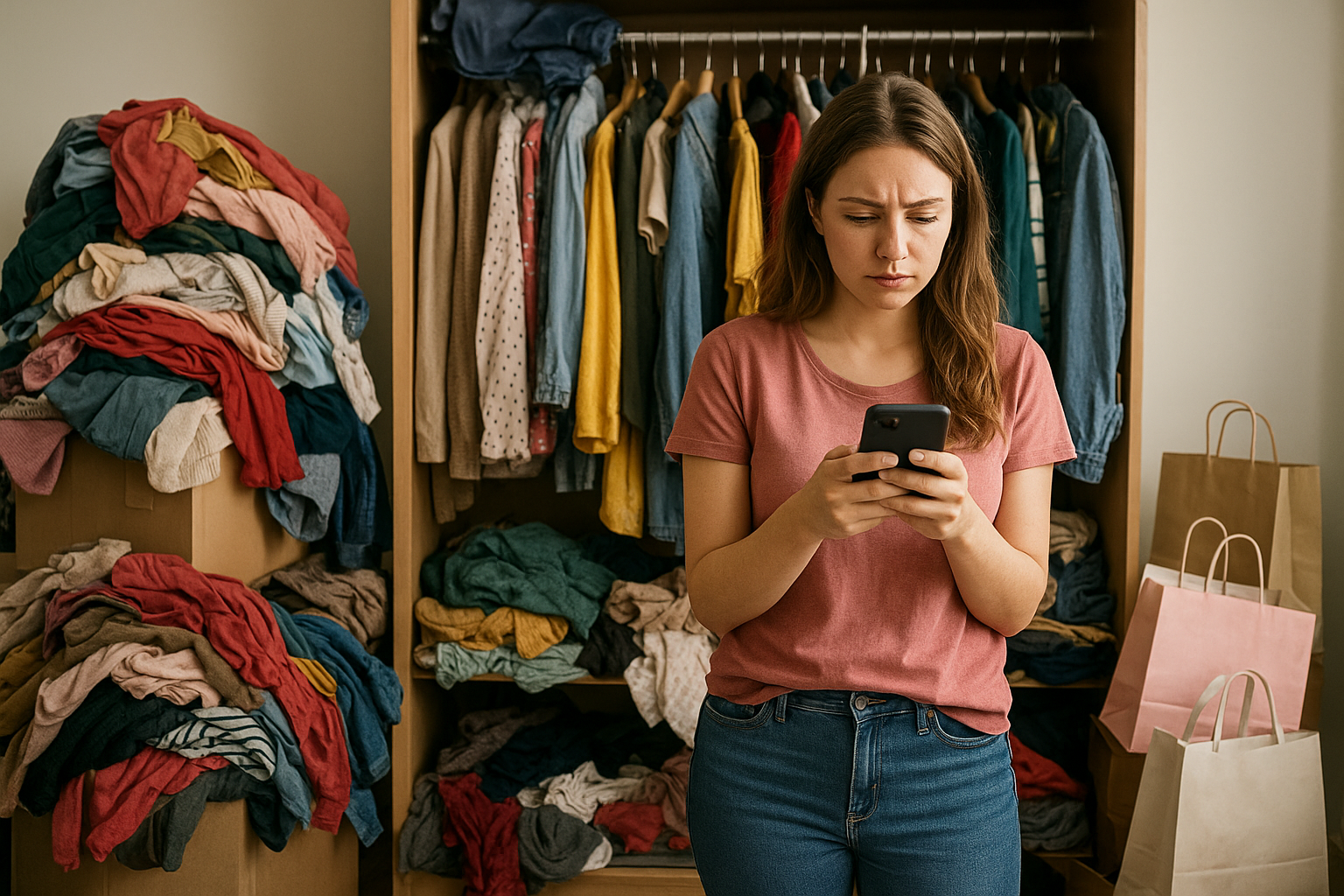The Hidden Cost of Owning Too Much: How Overconsumption Steals Our Time, Peace, and Planet
Share
We live in a world where "more" is synonymous with success. Our homes bulge with gadgets we rarely use, closets overflow with clothes we never wear, and garages become graveyards for forgotten hobbies. The average person owns 300,000 items, yet half lie untouched, gathering dust and guilt. This isn’t just a personal problem—it’s a planetary crisis. Overconsumption, the engine of modern consumerism, is devouring Earth’s resources faster than they can regenerate, while burying us under mountains of stress and stuff we don’t need.
The cycle begins innocently enough. Advertisements whisper promises of happiness through purchases, and social media stokes a relentless fear of missing out. Fast fashion brands like Shein and Zara churn out 100 billion garments annually, convincing us that a $5 shirt is a bargain—even though 85% of these clothes will end up in landfills within a year. Meanwhile, smartphones and laptops are designed with planned obsolescence, their batteries sealed shut to ensure we’ll replace them in two years. We work longer hours to afford these fleeting indulgences, trading time with loved ones for the thrill of a dopamine-hit purchase.
The environmental toll is staggering. Every minute, 27 soccer fields of forest vanish to feed our demand for timber, palm oil, and soy. Our oceans choke on 8 million tons of plastic yearly, a toxic legacy that outlives us by centuries. According to the UN Environment Programme, humanity now uses 1.7 Earths’ worth of resources annually, a deficit we “borrow” from future generations. Even recycling, once hailed as a solution, is a broken system: less than 9% of plastics are ever recycled, and much of that ends up dumped in developing nations.
But the damage isn’t just ecological. Clutter has become a silent thief of mental clarity. A UCLA study found that women with cluttered homes had cortisol levels 15% higher than their organized counterparts, trapped in a state of chronic stress. Millennials and Gen Z report soaring rates of eco-anxiety, a paralyzing fear of environmental collapse driven by the very habits they feel powerless to change. “I’d spend weekends shopping to cope with burnout,” admits Maria, a 32-year-old teacher, “but the stuff just made me feel emptier. It wasn’t until I donated 70% of my belongings that I finally breathed easier.”
Yet, hope is growing in the quiet corners of simplicity. Movements like minimalism and the Buy Nothing Project are challenging the myth that happiness lives at the mall. Families are adopting capsule wardrobes, pairing down to 30 versatile clothing items, and reporting newfound confidence in their pared-back style. Companies like Patagonia are pioneering circular economy models, repairing and reselling used gear to keep it out of landfills. Even tech giants like Fairphone are rebelling against planned obsolescence, designing modular smartphones with replaceable parts.
The shift isn’t just about buying less—it’s about redefining value. Take James, a former marketing executive who traded his six-figure salary for a tiny home. “I used to think wealth meant a big house and a luxury car,” he says. “Now, wealth is time. Time to hike, read, and be present with my kids.” Stories like his are backed by science: a 2023 study in Nature Human Behaviour found that people who prioritize experiences over possessions report 35% higher life satisfaction.
Breaking free from overconsumption starts with small, intentional acts. Try a 30-day shopping ban to reset your habits. Before buying anything, ask: Will I use this daily? Does it align with my values? Embrace secondhand shopping—apps like ThredUp and Poshmark make it effortless to find quality pre-loved items. For those overwhelmed by clutter, author Marie Kondo’s mantra—“Does this spark joy?”—offers a compassionate roadmap to letting go.
Ultimately, our legacy shouldn’t be a storage unit full of forgotten things. When we die, loved ones are left to sift through our possessions, a process 65% describe as emotionally exhausting. Instead of leaving clutter, consider crafting an ethical will—a letter sharing your values, stories, and hopes for the future. As environmental activist Anne Marie Bonneau reminds us, “We don’t need a handful of people doing zero-waste perfectly. We need millions doing it imperfectly.”
The path to enough isn’t deprivation—it’s liberation. By untangling ourselves from the web of consumerism, we reclaim time, reduce stress, and lighten our footprint on Earth. The ancient philosopher Lao Tzu once said, “He who knows he has enough is rich.” In a world obsessed with more, perhaps true wealth lies in discovering how little we actually need.
References:

